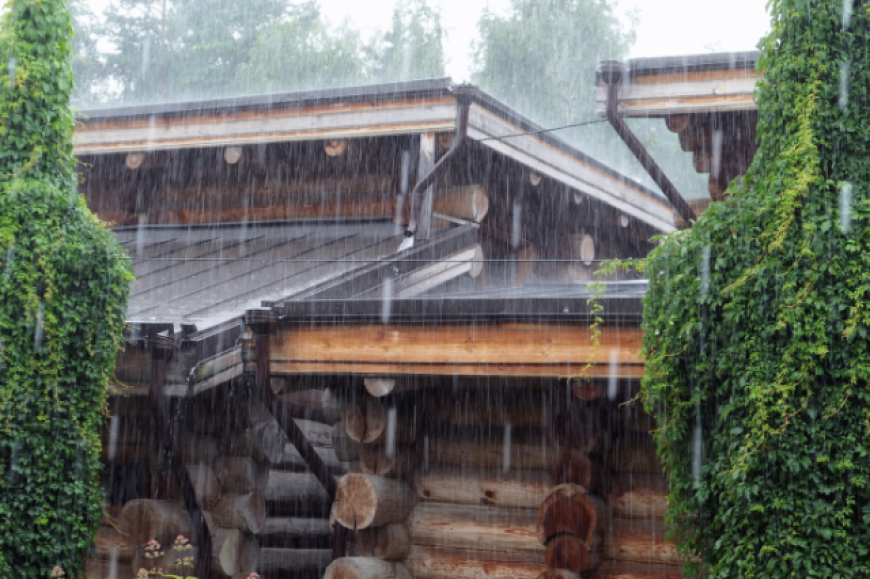What Happens to Solar Panels During a Hurricane or Storm in Florida?
If you’re a homeowner in Florida considering solar panels, you’ve likely wondered: Can they withstand hurricane season? It’s a fair concern—after all, Florida experiences more hurricanes than any other U.S. state, with over 120 direct hits recorded since 1851.

If you’re a homeowner in Florida considering solar panels, you’ve likely wondered: Can they withstand hurricane season? It’s a fair concern—after all, Florida experiences more hurricanes than any other U.S. state, with over 120 direct hits recorded since 1851.
But here’s the good news: solar panels are tougher than you think.
In fact, when installed correctly by professionals like Solaria Solar and Roofing, solar panels are not only built to survive hurricane-force winds but can be one of the first sources of power back online when the grid goes down.
Let’s break down how solar systems stand up to Florida’s stormy wrath—and why smart solar installation matters more than ever.
How Durable Are Solar Panels in Hurricanes?
Solar panels are tested to withstand winds up to 140 mph or more, depending on the manufacturer. That means many systems meet or exceed the standards set by the Florida Building Code, especially for coastal counties with higher wind load requirements.
For context:
-
A Category 3 hurricane brings winds of 111–129 mph
-
A Category 4 hurricane ranges from 130–156 mph
-
And some high-end panels are rated to withstand winds of up to 185 mph
So yes—solar panels can survive a hurricane. What’s more, the frames and glass used in modern photovoltaic (PV) systems are made from tempered, impact-resistant materials that can even stand up to hail and flying debris under certain conditions.
The Secret is in the Installation
Here’s where it gets even more important: how your solar panels are mounted makes all the difference.
At Solaria Solar and Roofing, we don’t just attach panels to the surface of your roof. We secure them with heavy-duty lag bolts that connect the racking system directly into the roof rafters. This anchoring method keeps your panels stable even in triple-digit wind speeds.
Fun fact: During Hurricane Irma in 2017, several homes in South Florida equipped with solar panels reported no loss or damage, even though surrounding properties without solar faced significant roof issues.
Will Solar Work After a Storm?
One of the most overlooked benefits of solar? Speedy recovery.
If your solar system includes a battery backup, such as Tesla Powerwall or other lithium-ion systems, you could have power immediately after the storm passes—even if your neighbors are still in the dark. This means you can:
-
Keep your refrigerator running
-
Charge phones and devices
-
Power essential medical equipment
-
Stay comfortable with fans or AC
According to data from the National Renewable Energy Laboratory (NREL), less than 0.1% of solar panel systems suffer storm-related damage annually. Most of the damage that does occur typically affects the roof itself, not the panels.
Real-World Resilience: Solar in Storm History
Let’s look at some examples:
-
Puerto Rico (post-Hurricane Maria, 2017): Homes with solar + battery storage were among the first to restore power in remote areas.
-
Florida, 2022 (Hurricane Ian): Numerous Florida homeowners with well-installed solar panels reported minimal to no damage, and many powered their homes before the grid came back online.
This real-world resilience makes solar not just a green decision—but a smart disaster-prep tool.
How to Hurricane-Proof Your Solar Investment
If you live in Florida, here are a few tips to ensure your solar system is storm-ready:
-
Choose a Licensed, Local Installer
At Solaria Solar and Roofing, we know the unique weather patterns and building codes of Florida cities like Orlando, St. Petersburg, and Kissimmee. -
Inspect Your Roof First
We offer full roof inspections and replacements to make sure your structure is strong enough to support solar. If your roof isn’t ready, solar installation can wait—but roof failure can’t. -
Opt for Battery Backup
A solar battery is your best friend when the power grid fails. It can keep your home running, even when the sun isn’t out. -
Get a Free, No-Obligation Quote
Solaria offers obligation-free evaluations, giving you a detailed breakdown of your home’s solar-readiness—without pressure.
Final Thoughts: Solar Isn’t Just for Sunny Days
While solar panels are known for harvesting sunlight, their true power shines during the stormy days. With proper solar panel installation, solar isn’t a liability—it’s an asset in hurricane-prone Florida.
Whether you're in Tampa, Clermont, Lakeland, or Winter Garden, Solaria Solar and Roofing has you covered with high-wind-rated solar panels, expert roof evaluations, and battery storage solutions to weather any storm.

 carljames
carljames